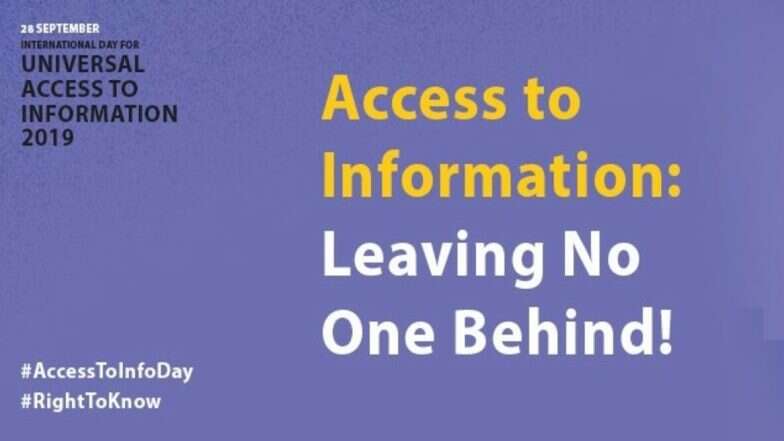Image: UNESCO
The 2019 International Day for Universal Access to Information was celebrated under the theme ‘Leave No One Behind!’ on Saturday, 28 September.
The theme of this year’s International Day for Universal Access to Information (IDUA) should resonate with Namibia, as president Hage Geingob also likes saying “no Namibian should be left out”.
Unfortunately, in the realm of access to information, Namibians are still largely left out, despite government and official claims to the contrary.
And increasingly this is also reflected in Namibia Fact Check’s own experiences, as numerous information requests sent to various ministers and senior government officials over the last two months have been met with silence and unresponsiveness.
Even two requests for information or clarity sent to the Office of the President have to date not been responded to by the presidential media office.
So it appears that the president and government’s pronouncements on promoting transparency and responsive engagements amount to no more than political rhetoric. Perhaps then it is important to remind the powers that be why access to information is so important.
As the Sustainable Development Goals (SDGs), which Namibia has signed up to indicate, access to information is critical for the attainment of prosperous and healthy societies. In fact SDG 16.10 calls for “public access to information and fundamental freedoms”, in clear recognition of this fact.
Underscoring this point, in her message on this year’s IDUA, UNESCO director general, Audrey Azoulay, said: “Universal access to information is a fundamental human right that plays a pivotal role in empowering citizens, facilitating fair debate and giving equal opportunities to all. It is a driving force for transparent, accountable and effective governance, and paves the way for freedom of expression, cultural and linguistic diversity, and participation in public life. For this reason, universal access to information is a pillar of the 2030 Agenda for Sustainable Development.”
Azoulay also recognises that new technologies and innovations are increasingly making it easier to build out access to information and bridges across the local, regional and international information and knowledge divides that have allowed inequalities to thrive.
Against this backdrop, the Namibian government and society need to move beyond words, and tangible actions should be taken and mechanisms be put in place – such as the enactment of a long-overdue access to information law – that empower and enable Namibian society to access necessary and accurate information from government in order for broad-based development and prosperity to be unlocked, and for transparency and accountability of governance to be realised.
That is what is necessary for Namibian democracy to grow strong and survive over time.
That is also the only way that Namibia will prosper and remain stable and secure.

